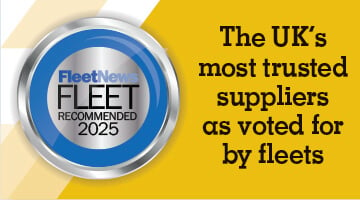Against this backdrop, fleet managers in many multinational companies are being 'encouraged' to use their buying power more effectively. The theory is simple; you add together all of your total fleet purchases across Europe and invite manufacturers to tender for all or part of the business.
Surely, the argument goes, improved terms and efficiencies can be obtained by adopting this strategy? The rental industry should be ideally placed to take full advantage of the Brave New Europe as it continually buys large numbers of similar cars. But is the real world really as simple as that, and are suppliers fully prepared for dealing across national boundaries?
Looking first at the supply side, there is no doubt that some manufacturers do have well established pan-European operations which are structured to respond to the needs of multinational fleets.
At the other end of the spectrum, there are still a number of large vehicle producers who continue to insist on trading country by country. In certain markets, the manufacturer may not own the local importer, and this limits the scope for development of a pan-European set-up.
Even where the national sales operation is one of their subsidiaries, manufacturers can encounter problems when trying to convince their local management that multinational agreements may need to override existing deals at the expense of national profit margins.
This makes it essential for both the central and local management to assume full ownership of pan-European deals. If this basic foundation is not firmly established, the prospects of success are poor. It is not difficult to cripple centrally negotiated contracts by cynically deploying local knowledge to create obstacles.
At the moment, manufacturers are in 'multispeed' mode and some are stationary. Eventually, however, it seems certain that to remain competitive, they will all have to create an effective channel for managing pan-European deals. In the meanwhile, any fleet customer seeking a multinational supply deal needs to do their homework on exactly what potential suppliers are able to offer.
What of the rental industry? Is it fully prepared for dealing across national boundaries and does its customers want it to offer a common product range in all European markets?
In the key area of fleet policy, major rental companies have almost as many different strategies as the manufacturers. Some use a centralised function to negotiate supply for all of their major operations, and others leave each country to deal locally. Much depends on the company structure and its ownership. For instance, it is not necessarily desirable or practical to impose multinational deals on franchised territories, and manufacturer-owned rental companies will normally be expected to support the home product.
Turning to the rental customer, we now live in a world where every consumer expects a choice and the position is further complicated by differing national attitudes to the major manufacturers.
Unlike the UK, motorists in some of the major markets in continental Europe are very loyal to their domestic manufacturers. For proof, you need to look no further than France and Italy. Both of these key markets are still dominated by home vehicle producers and the fleet line-up needs to reflect this characteristic. To be effective, any pan-European fleet policy needs to square the circle of catering for varying national preferences while creating opportunities for economies of scale.
In summary then, the market is opening up across Europe but there are many barriers to be removed before reality matches the publicity. However, the pace of change is accelerating. Can your company afford not to get on the train before it leaves the station? Answers on a postcard please!















Login to comment
Comments
No comments have been made yet.